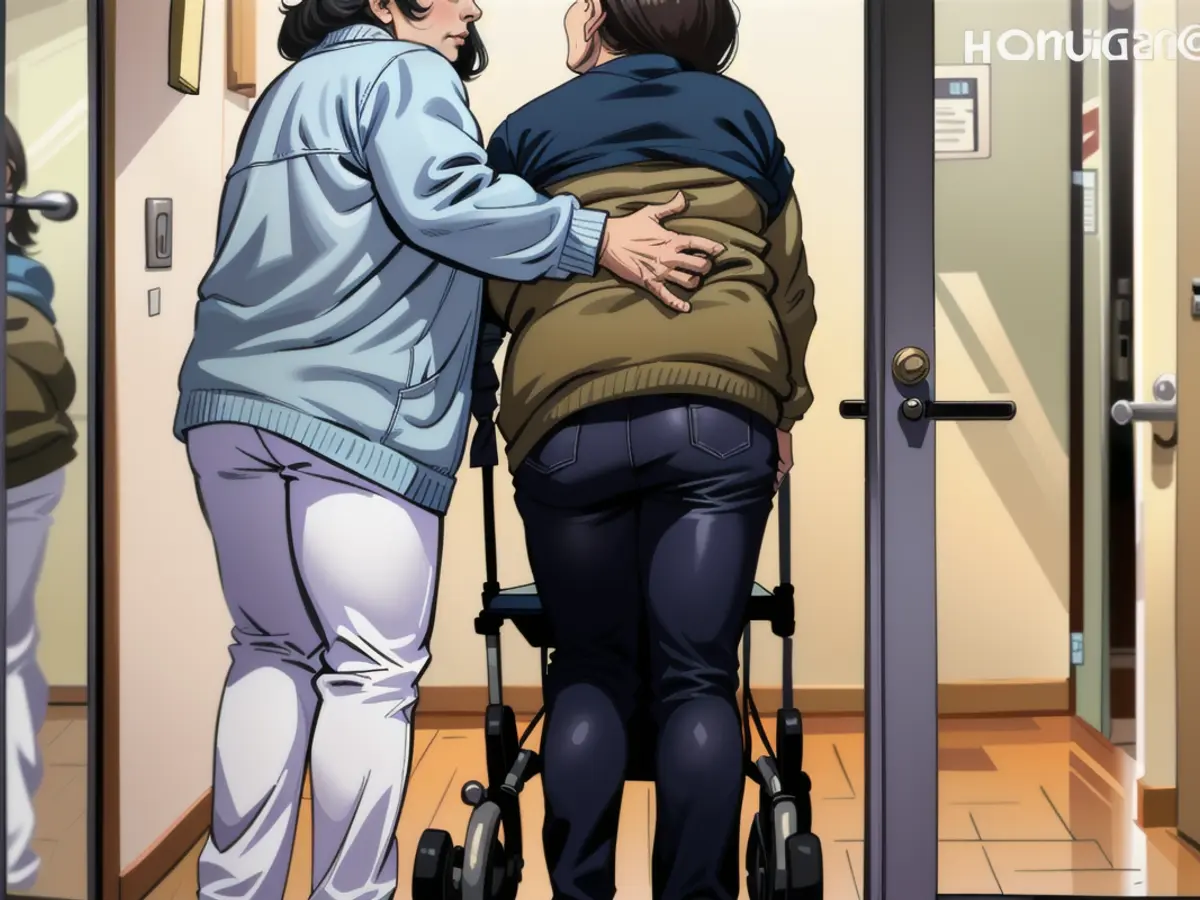The Nursing Council anticipates a nursing workforce deficit of around half a million by the year 2034.
Vogler explained the predicted shortage of caregivers by stating, "we're all getting older, which means more people require assistance." Besides, the high part-time rate within the industry should be taken into account.
"Concurrently, due to demographic shifts, fewer individuals are working or embarking on careers in caregiving," Vogler insisted. "The discrepancy between supply and demand is expanding." So, there's a lack of approximately 115,000 professional caregivers in full-time caregiving roles currently.
The association president pleaded with the federal government to offer incentives for voluntary caregiving in addition to asking for more tax reductions in statutory care insurance and restructuring social professions.
Recently, Federal Health Minister Karl Lauterbach (SPD) stated that care insurance was experiencing an unexpected rise in the number of new care-dependent individuals. This "exploded" recently. Nonetheless, a comprehensive financial reform is "probably" not possible during the current legislative term.
The head of the Association of Health Insurance Funds in North Rhine-Westphalia, Dirk Ruiss, strongly condemned this in the "Rheinische Post." His association has long advocated for a lasting financial reform of statutory care insurance. To have Lauterbach reject it during the current legislative term is "deeply disheartening."
The association already expects an increase in the care insurance premiums next year to ensure the system's financial sustainability.
For meaningful discussions about care's future, which "go beyond superficiality," Hasselfeldt, the president of the German Red Cross, urged. "If we don't, we'll smash the entire care system into the wall."
Care should be perceived as an aspect of essential care and a societal responsibility. "We have a significant rise in care-dependent people, escalating expenses, and a static number of caregivers, with almost no wiggle room in the state budget," Hasselfeldt suggested.
More family members should be included in caregiving in the future, she advocated. Simultaneously, the appeal of care professions must be raised.
A reform in care was also demanded by Emmi Zeulner, the care political spokesperson of the Union parliamentary group, in the "Bild." More nursing home spaces don't solve the problem. "We can't even fully operate the existing ones." Instead, alternative forms of social organization of care, like caring communities, neighborhood, and day care, are necessary.
Meanwhile, the deputy chairwoman of the Green parliamentary group, Maria Klein-Schmeink, referenced the outcomes of a working group that handled care financing under the Health Ministry's supervision. These results are "more critical than personal speculations or quick glimpses."
These outcomes should be "presented rapidly and thoroughly" so that a solid foundation exists for developing further action. The Green politician emphasized: "Our objective remains that care is fairly and reliably funded, and as quickly as possible."
Read also:
- This will change in December
- Dikes withstand water masses so far - Scholz holds out the prospect of help
- Fireworks and parties ring in 2024 - turn of the year overshadowed by conflicts
- Attacks on ships in the Red Sea: shipping companies avoid important trade route
- The Nursing Council believes that by 2034, there will be a deficit of around 500,000 nursing staff to care for people in need, due to an aging population and a decline in individuals entering the caregiving field.
- Vogler, the president of the Nursing Council, urged the Federal Government to take action by offering incentives for voluntary caregiving and implementing tax reductions in statutory care insurance.
- SPD's Federal Health Minister, Karl Lauterbach, acknowledged an increase in care-dependent individuals, but expressed doubt about a comprehensive financial reform being possible during the current legislative term.
- SPD's rejection of a financial reform in statutory care insurance was criticized by Dirk Ruiss, the head of the Association of Health Insurance Funds in North Rhine-Westphalia.
- In a push for change, Green parliamentary group deputy chairwoman Maria Klein-Schmeink called for the rapid and thorough presentation of the outcomes from a working group on care financing under the Health Ministry's supervision.
- SPD's Emmi Zeulner suggested that alternative forms of social organization of care, such as caring communities, neighborhood, and day care, are necessary apart from increasing nursing home spaces, to address the nursing workforce deficit by 2034.
Source: www.stern.de







